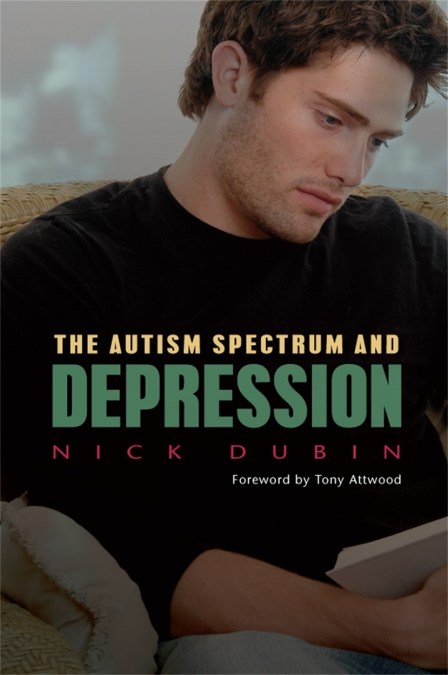For people with Autism Spectrum Disorder (ASD), the stresses of coping with a world that often seems alien to them can frequently lead to depression. Written specifically for adults with ASD, this ground-breaking book offers accessible and sensitive advice on how to manage depression and make positive steps towards recovery.
Nick Dubin shares his own experiences of depression including how he has dealt with it, and everything from initial feelings of anger and frustration to medication, cognitive behavioural therapy and overcoming ‘the dark night of the soul’. It explores the aspects of everyday life that can cause people with ASD to feel low, explains how this can escalate and looks at ways in which depression can be prevented. With a chapter on suicide and interviews with his parents, the book provides real, practical solutions to a problem that is often overlooked.
Nick Dubin shares his own experiences of depression including how he has dealt with it, and everything from initial feelings of anger and frustration to medication, cognitive behavioural therapy and overcoming ‘the dark night of the soul’. It explores the aspects of everyday life that can cause people with ASD to feel low, explains how this can escalate and looks at ways in which depression can be prevented. With a chapter on suicide and interviews with his parents, the book provides real, practical solutions to a problem that is often overlooked.
Newsletter Signup
By clicking ‘Sign Up,’ I acknowledge that I have read and agree to Hachette Book Group’s Privacy Policy and Terms of Use
Reviews
The Autism Spectrum and Depression will be my primary reference book for explanations and ideas to alleviate depression for clients in my clinical practice. If you are feeling depressed because you have Asperger's syndrome, or know someone with Asperger's syndrome who seems depressed, please buy and read this book.
Knowledge is power, and every person with Asperger's Syndrome owes it to themselves to be empowered by this book. Writing with the authenticity of personal perspective, Dr. Dubin provides real-world advice and clarion insight about depression that make this guidebook a positively indispensable resource.
Expertly drawing from the work of psychiatrists, psychologists, and even philosophers of ancient times Nick weaves personal and colleagues' experiences of Asperger Syndrome to go deeper and with greater understanding into depression for persons with autism than anyone before.
Anyone that has experienced accumulated depression alongside their Asperger's Syndrome will find something useful in this book. Dr. Dubin's newest contribution, containing countless personal anecdotes as well as professional observations, provides welcome assistance for this often paralyzing combination.
“Nick Dubin is one of those thoughtful and talented young people with ASD who can articulate exactly what it is like to have ASD. His previous books about bullying and anxiety are well known and with this book he has now drawn attention to one of the most pressing problems for those with ASD and that is depression. Not only does he help us to understand this problem that is increasing at a disturbing rate, but he gives us the background, context, theory and some delightful and revealing stories. Anyone interested in this urgent problem and people with ASD will find new insights, directions, and, most important, new ways to help in this outstanding and fascinating book.”
This book provides an open, honest and personal account of the author's experience of Asperger's syndrome and depression providing a very interesting insight into his perception of reality, thoughts and behaviour... The author offers practical advice on ways to manage and overcome depression and includes suggestions of sources of help as well as the use of medication... The book encourages self-reflection which suggests it could be used as a self-help book for other individuals with the same diagnosis.
This publication is felt to be suitable for people with Asperger's as well as families, professionals and carers. Overall, this is a very interesting and thought provoking book.
